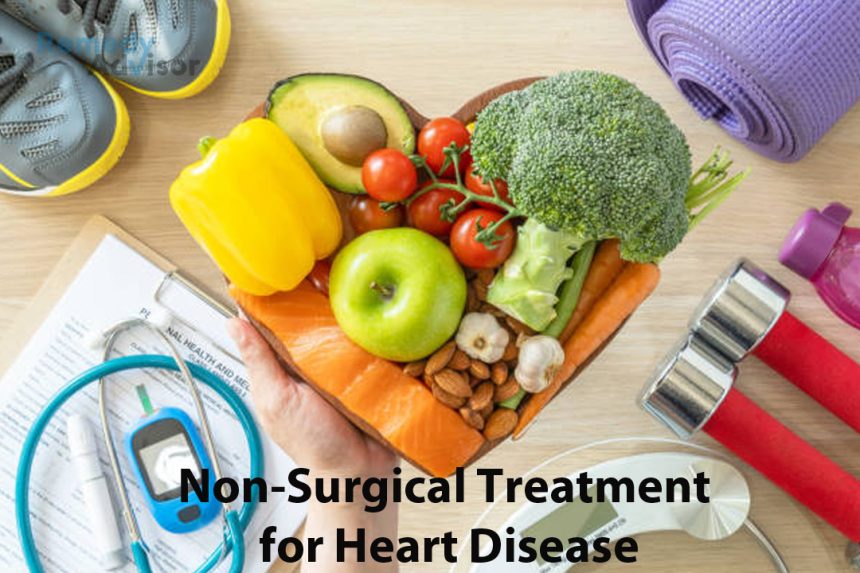For anyone with heart disease even for anyone at risk for heart disease it may seem as if time is running out.
But having treated thousands of heart patients in my clinic over the past 10 years, I know that there is time to recover cardiovascular health in nine out of 10 cases. This can usually be accomplished without angioplasty or bypass surgery.
Anyone eager to prevent or cure heart disease must learn to avoid fatty foods and other dietary “poisons.”
I’m often asked, “How often can I eat steak and eggs without hurting my heart?” I reply, “How often can you smoke without any ill effects on your body?” The only honest answer to both questions is never.
Dramatic changes are possible
Most of the people who participate in my two-week program are seriously ill. Many have already had a heart attack. Others take medication for chest pain (angina) or high blood pressure.
By the time they leave our clinic, most have significantly lowered their cholesterol and blood pressure and stopped taking medicine. The vast majority go on to live full lives.
This remarkable transformation involves three simple steps
• Eliminate all excess fat from your diet
That means substituting fruits, vegetables and grains for red meat, chicken, dairy products, eggs, oils, cakes and candies and refined and processed foods.
• Get daily aerobic exercise
Patients in my program are required to walk for at least 30 minutes a day.
• Learn to manage psychological stress
Without resorting to overeating or other self-destructive behavior. Massage, meditation and group discussion are all effective ways to do this.
The skinny on fat
The typical American gets a whopping 40% of his daily calories in the form of fat. It’s this fat that clogs the coronary arteries with the fatty streaks (plaques) that cause heart attack. Dietary fat endangers your heart by…
- Causing red blood cells to clump. That slows circulation, reduces oxygen in the blood and raises blood pressure.
- Creating new plaques and making them prone to rupture.
- Causing existing plaques to grow.
- Causing abnormally rapid clotting of the blood. That can lead to arterial occlusion if a new plaque bursts.
- Causing release of hormone-like compounds. Called prostaglandins, these compounds boost the clumping effect.
To keep plaques from forming, the American Heart Association (AHA) suggests limiting daily fat intake to 35% of calories. Yet studies show that even at this level of fat intake, new plaques continue to form. Amazingly, the AHA stands by its misguided recommendation.
How heart attacks occur
Many people think that a heart attack occurs when an old plaque grows so big that it occludes a coronary artery.
Actually, most heart attacks occur following the rupture of a newly formed plaque which contains liquid fat and cholesterol.
This rupture leaves a wound on the artery wall which is quickly capped with a blood clot. This clot can grow quickly, becoming so large that it occludes the artery and stops blood flow to the heart.
The implication? Heart attacks can occur even when the coronary arteries are relatively plaque free. It is good to play Russian roulette each time you eat a fatty meal.
The mcdougall program
My diet separates foods into three categories
- Eat all you want
- Brown rice, wheat, corn, oatmeal and other whole grains
- Whole-grain products, including noodles, breads, pancakes and waffles. Make sure they contain no fats or oils
- Potatoes and yams
- Squash
- Peas, lentils, lima beans and string beans
- Green and yellow vegetables
- Cucumbers, onions, peppers and tomatoes
- Beets, carrots, turnips and other root vegetables
- Mild spices and herbs
- Eat in moderation
- Fruit, fruit juice and dried fruit (up to three servings a day)
- Sugar and artificial sweeteners
- Salt
- Alcohol
- Fatty plant foods, including nuts, peanut butter and tofu.
Avoid
- Red meat, poultry, fish, seafood, eggs, milk and milk products like butter, cheese, yogurt and sour cream. Even nonfat dairy products should be avoided. They contain proteins that can trigger an artery-damaging immune response. I allow fatty foods only on special occasions eggs on Easter turkey on Thanks giving cake on your birthday.
- Cooking oil. Instead, use a nonstick pan or wok. Sauté with water, soy sauce, wine, tomato juice, lemon or lime juice or Worcestershire sauce. When baking, replace the oil in the recipe with half the amount of applesauce, mashed bananas or soy yogurt.
- Sulfites. These preservatives, used in wines and in salad bars, can cause an allergic reaction.
When buying packaged food, read labels carefully. Avoid products containing fats and oils, including monoglycerides, diglycerides and/or hydrogenated or partially hydrogenated fats or oils. Before making long-term dietary changes, discuss your nutritional needs with a doctor or dietician.







